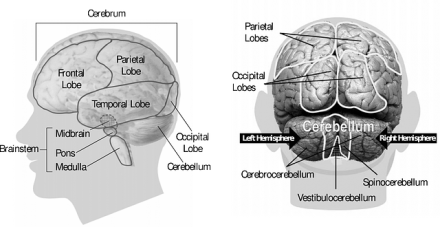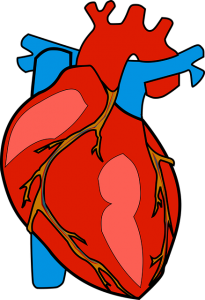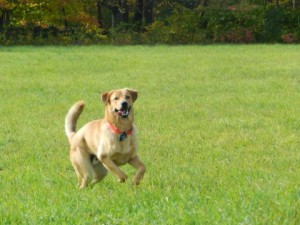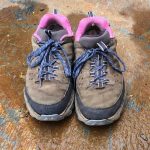
The good news for those of us in middle age is the mounting evidence that regular, cardiovascular exercise can delay and possibly prevent the memory loss associated with aging; all we have to do is sweat.
You’d have to be living under a rock not to know that aerobic exercise promotes cardiac health. The heart is a muscle, and exercise keeps it toned. New studies reveal that the same exercise that keeps your ticker pumping can also keep your brain sharp. For those of us in middle age who want to prevent cognitive decline, it means regularly exercising hard enough to sweat.
While the brain isn’t a muscle, its health and function is very much influenced by the heart’s health. So while puzzles and word games are fun, what really matters is blood flow. Just as the muscle tone of the heart and circulation both improve with regular exercise, so does the brain. In particular, studies reveal that the hippocampus, which is the part of the brain that directs language acquisition and organizes memory, increases in size with aerobic activity.
New research proves that cardiovascular fitness boosts memory. So maybe those lapses in word retrieval that we call “senior moments” aren’t really as much about aging as about sloth.
I first learned about the benefits of aerobic exercise in college, where we measured our vital statistics before and after engaging in a six-week program of aerobic activity in a class for non-science majors called Human Biology. I immersed my self in the school’s pool and stroked my way to fitness. Back then, my interest in cardiac health wasn’t about blood pressure and lung capacity nearly as much as it was in matters of the heart: finding love and avoiding heartbreak.

But even in a love-filled life, heartbreak is unavoidable; maintaining cardiac health through aerobic exercise helps make it bearable. In addition to all its known benefits of lowering blood pressure, helping maintain a healthy BMI, enhancing mood and defending against insulin resistance and depression, aerobic activity also boosts memory, improves concentration and fosters creativity. All we have to do is sweat.
That’s the bad news.
The good news is that the exercise doesn’t have to be extreme. In fact, extreme exercise has been found to increase stress, which is known to interfere with memory.
Reducing stress is a good reason to practice yoga, which pairs breath control with movement. I’ve been practicing yoga for several years. In addition to improving my core strength and increasing both my physical and mental flexibility, I’ve also learned how better to control stress through breath.
Reducing stress is good for memory. But you don’t have to take my word for it. A 2010 article in Social Cognitive and Affective Neuroscience correlates stress reduction with physical changes to the amygdala, the part of the brain believed to process stress, fear and anxiety.
Reducing stress is just part of the equation. Getting your heart pumping until you sweat is another. And you don’t have to sign up for a marathon or train for the Tour de France. Walking is just fine.

I used to run and once ran a half marathon. But I’ve only been a successful runner when I’ve had a running partner to hold me accountable. Now, I walk, and my dog Leo holds me accountable. Accountability is helpful, and walking is supremely beneficial.
In addition to the physiological benefits of walking, which in turn benefit memory and concentration, walking is known to promote creativity. Psychologists at Stamford performed four different experiments that proved, “walking boosts creative ideation in real time and shortly after.” If only they’d asked me, I could have told them that.
I live in a valley, so every walk begins with a stiff climb, which gets my heart pumping. But as soon as I reach the top of the hill my mind freewheels. Inevitably, I return from my walk with new ideas for whatever I’m writing.
It’s good news that dementia rates in the US are dropping even as the population ages, but there’s even better news that garden-variety dementia might be as preventable as most cardiac illness, and without medical intervention. Growing evidence would suggest that to stay physically and mentally fit, all we have to do is sweat.

Thanks for putting all this great info out there! I am forwarding to my 90 and 93 year old parents now.
Working to a sweat is the ticket.
I had worked up to 6 mile walks last year but still was winded on hills.
As soon as I strive to get my heart rate up to 85% for my age’s maximum rate I really broke out in a sweat.
I can climb hills now with ease.
This change was after seeing the difference in my parents health and their differences in heart exercise. Mother (the 93 year old Energizer Bunny) has always been on the go from the minute her feet touch the ground. Dad, on the other hand, did most of his exercise with his brain and voice. (An executive and singer) Dad’s heart just can’t pump the blood well and he is tires and weak. Mother is still running circles around all of us!!
Thanks for putting all this great info out there! I am forwarding to my 90 and 93 year old parents now.
Working to a sweat is the ticket.
I had worked up to 6 mile walks last year but still was winded on hills.
As soon as I strive to get my heart rate up to 85% for my age’s maximum rate I really broke out in a sweat.
I can climb hills now with ease.
This change was after seeing the difference in my parents health and their differences in heart exercise. Mother (the 93 year old Energizer Bunny) has always been on the go from the minute her feet touch the ground. Dad, on the other hand, did most of his exercise with his brain and voice. (An executive and singer) Dad’s heart just can’t pump the blood well and he is tires and weak. Mother is still running circles around all of us!!